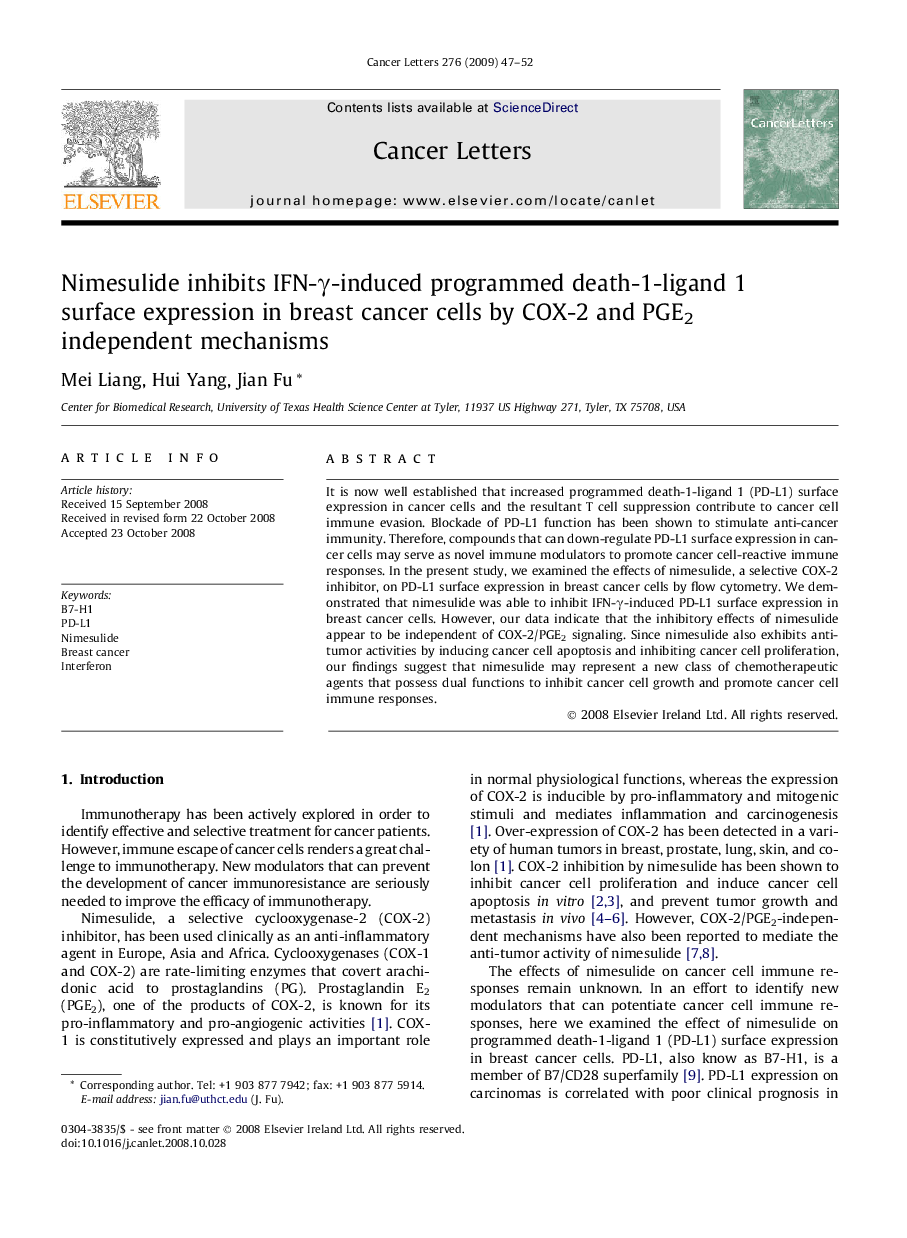| Article ID | Journal | Published Year | Pages | File Type |
|---|---|---|---|---|
| 2116593 | Cancer Letters | 2009 | 6 Pages |
It is now well established that increased programmed death-1-ligand 1 (PD-L1) surface expression in cancer cells and the resultant T cell suppression contribute to cancer cell immune evasion. Blockade of PD-L1 function has been shown to stimulate anti-cancer immunity. Therefore, compounds that can down-regulate PD-L1 surface expression in cancer cells may serve as novel immune modulators to promote cancer cell-reactive immune responses. In the present study, we examined the effects of nimesulide, a selective COX-2 inhibitor, on PD-L1 surface expression in breast cancer cells by flow cytometry. We demonstrated that nimesulide was able to inhibit IFN-γ-induced PD-L1 surface expression in breast cancer cells. However, our data indicate that the inhibitory effects of nimesulide appear to be independent of COX-2/PGE2 signaling. Since nimesulide also exhibits anti-tumor activities by inducing cancer cell apoptosis and inhibiting cancer cell proliferation, our findings suggest that nimesulide may represent a new class of chemotherapeutic agents that possess dual functions to inhibit cancer cell growth and promote cancer cell immune responses.
